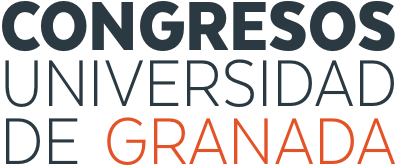
Science and Technology Indicators Conference
Nicolas Robinson-Garcia y Daniel Torres-Salinas
Granada
Congreso / Documentación
Web: http://sti2022.org
The 2022 STI conference addresses the new issues and challenges that have appeared in Science, Technology and Innovation indicators. New databases and sources have emerged. Science is opening up with the expansion of Open Access, Open Source, data sharing and Open Citations. New techniques and methodologies from Data Science have been introduced in the field of STI, allowing the analysis of big data sets. These developments have led to a global ecosystem in which the capacity to generate indicators and quantify scientific activity and performance offer more opportunities than ever. Paradoxically, quantitative indicators are more contested than ever, with several calls from within and out of the bibliometric community calling for good practices and a responsible use of research metrics. At the same time, science policy makers are demanding new types of indicators to respond to societal demands at the local level while reconciling with global challenges and ensuring research integrity. The conference will be the opportunity to showcase results from the intense work done in recent years on the way science, technology and innovation indicators are used in relating social actors to science and technology. How methodological frameworks are adapted to meet the needs of specific policy contexts and how indicators are consumed and interpreted in a responsible manner. The worned expression ‘informed peer review’ is now seeing a revival with many novel approaches combining expert judgment and quantitative indicators. This is crucial to ensure a responsible use of metrics in which not only the design and selection of indicators but also the interpretation and use of them is done appropriately. From a policy perspective, the irruption of Big Data, Artificial Intelligence or the Sustainable Development Goals of the UN Agenda 2030 are presenting new challenges as strategic planning and monitoring has to be combined with RRI practices and research integrity. Also social outreach becomes a key target for science policy as topics with large scientific consensus such as vaccinations or climate change are questioned by a large part of the population due to the emergence of the so-called ‘fake news’. Three years ago, STI 2018 revolved around the topic of indicators in transition, discussing the need for broader and more comprehensively Science, Technology and Innovation indicators. Last year, the topic chosen related to research integrity and performance. In STI 2021 we will interrogate how can we converge global and local demands to adapt indicators and frameworks to science policy needs and supply the information demanded in a responsible and coherent way. These objectives include new methodological developments, new methods in the analysis of big data and data integration. Also, learn from case studies on good practices, the application of global guidelines and principles to develop institutional policies on the use of research metrics or the use of methodological frameworks in different policy contexts. Processing, sharing, analysis and use, including the management of large data in a large variety of forms. Last but not least, methodologies and techniques to monitoring and promoting open science in its broadest sense, fostering reproducibility, participatory science or data sharing.



